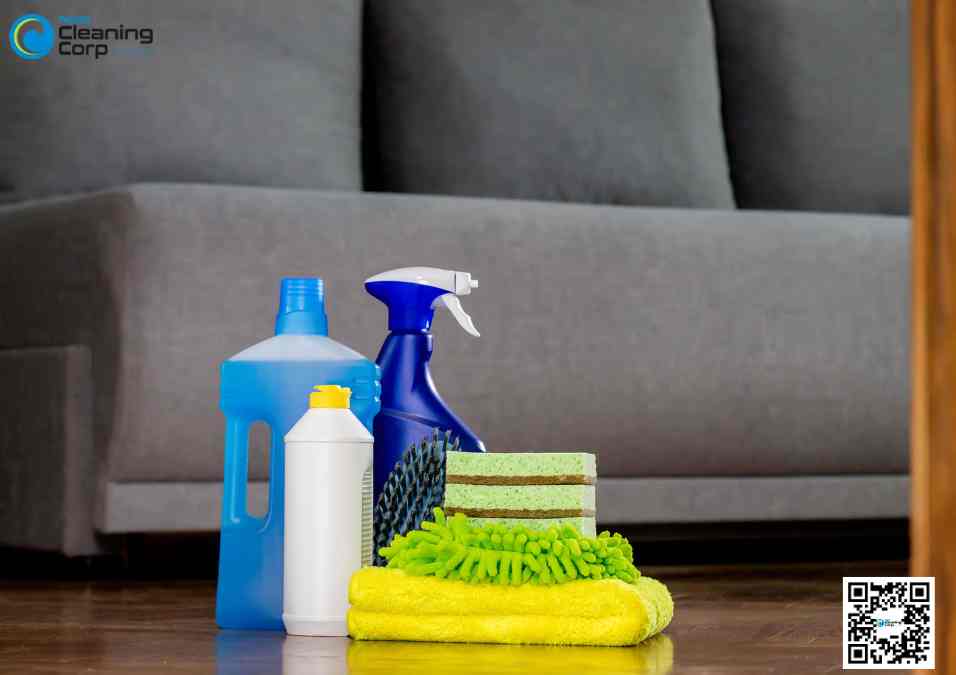Does the NDIS Fund Cleaning Services?
Yes. The NDIS does fund cleaning services — but it...
The role of professional cleaning in maintaining a safe and healthy home for NDIS participants is crucial for ensuring a safe and hygienic living environment. Professional cleaning services specifically tailored for NDIS participants address their unique needs and challenges, which can vary greatly depending on the individual’s disabilities and circumstances.
A clean and healthy living environment is not just about aesthetics; it significantly impacts overall well-being and enhances quality of life. Cleanliness contributes to physical health by reducing the risk of infections and illnesses, and it supports mental health by creating a stress-free and organized living space. For NDIS participants, who may face mobility challenges, sensory sensitivities, or other specific needs, maintaining a clean home environment is essential for their safety and comfort.

NDIS participants often face specific needs due to their disabilities, making professional cleaning services indispensable. For instance, individuals with mobility issues might struggle with regular cleaning tasks, while those with sensory sensitivity could be particularly affected by dust and allergens.
Professional NDIS cleaning services are designed to address these unique needs by providing specialized care beyond standard cleaning. These services ensure that the environment is not only clean but also tailored to support the participant’s specific requirements. For example, cleaning services might use hypoallergenic products to minimize allergens or employ techniques to reduce noise and disruption, enhancing the comfort and safety of the living space.
Regular cleaning and maintenance services prevent the spread of allergens, bacteria, and mould, which can be particularly harmful to individuals with compromised immune systems. For NDIS participants, whose health may already be vulnerable, maintaining a high standard of cleanliness is essential to avoid exacerbating existing health conditions or introducing new risks.
Real-life example: An NDIS participant who previously experienced frequent respiratory issues saw a marked improvement in their health after engaging in professional cleaning services. This participant’s home was regularly cleaned using techniques and products designed to reduce allergens and contaminants, which contributed to fewer health complications and a better quality of life.
Research supports this impact: Studies have shown that a clean home environment significantly reduces the risks of infections and contributes to better mental health. For example, a study published in the Journal of Environmental Health found that improved home cleanliness led to a 30% decrease in respiratory symptoms among individuals with asthma and allergies. Another study in Occupational and Environmental Medicine highlighted that regular cleaning reduces the incidence of infectious diseases and enhances overall health outcomes.
Professional NDIS cleaning services are instrumental in reducing allergens and bacteria, which are critical for maintaining a healthy home environment. For individuals with disabilities, who might have compromised immune systems or specific health conditions, controlling allergens and bacteria is essential to avoid exacerbating their health issues.
Statistical data underscores the importance of cleanliness in health outcomes. For example, a study in the American Journal of Respiratory and Critical Care Medicine found that improved home cleanliness led to a 40% reduction in asthma symptoms among children with allergies. Another study published in The Lancet indicated that thorough cleaning of high-touch surfaces reduced the incidence of healthcare-associated infections by 25% in settings with vulnerable populations.
Professional cleaning significantly mitigates common hazards that can lead to accidents or falls, particularly for individuals with mobility challenges. Maintaining a clean and organized environment helps in reducing the risk of injuries.
Ensuring that living spaces are clean and well-maintained is in alignment with NDIS practice standards. These standards emphasize the importance of safety and accessibility in the homes of NDIS participants. According to the National Disability Insurance Scheme (NDIS) Quality and Safeguards Commission, maintaining a safe environment is a critical aspect of supporting individuals with disabilities.

A clean and organized environment has a profound impact on mental health and stress levels. For NDIS participants, a well-maintained home contributes to emotional well-being and a sense of autonomy.
More Post
When selecting a professional cleaning service for NDIS participants, several key qualities are essential to ensure that the service meets the unique needs of individuals with disabilities.
Reliable service providers offer tailored cleaning plans that address the unique requirements of NDIS participants. These plans ensure high-quality service and participant satisfaction by adapting cleaning methods and schedules to meet individual needs.
When evaluating potential NDIS cleaning service providers, asking the right questions is crucial to ensuring the service meets your needs. Here are some essential questions to consider:
It is important to confirm that the cleaning service is knowledgeable about NDIS requirements and practices. This ensures they can provide services that are compliant with NDIS standards and effectively support the participant’s needs.
Ask about their methods for addressing specific cleaning requirements, such as managing allergens, handling biohazards, or accommodating mobility issues. This will give you insight into their ability to provide customized and effective cleaning solutions.
Tips for evaluating the effectiveness and reliability of cleaning services include:
Recap of the importance of integrating professional cleaning services into the support plan for NDIS participants: Professional cleaning is a vital component of ensuring a safe and healthy living environment for individuals with disabilities.
Emphasize the positive impact of a clean living environment on health, safety, and mental well-being. A clean home supports physical health, prevents accidents, and fosters emotional stability.
Encourage NDIS participants and their caregivers to make informed decisions about engaging professional cleaning services. Consider the unique needs and benefits to select a service that provides the necessary support for maintaining a high quality of life.
More Post

Yes. The NDIS does fund cleaning services — but it...

Alright, let’s get straight into it. These are the questions...

NDIS cleaning services are specifically designed to cater to the...

The role of professional cleaning in maintaining a safe and...

Studies consistently show that living in a clutter-free, organized space...